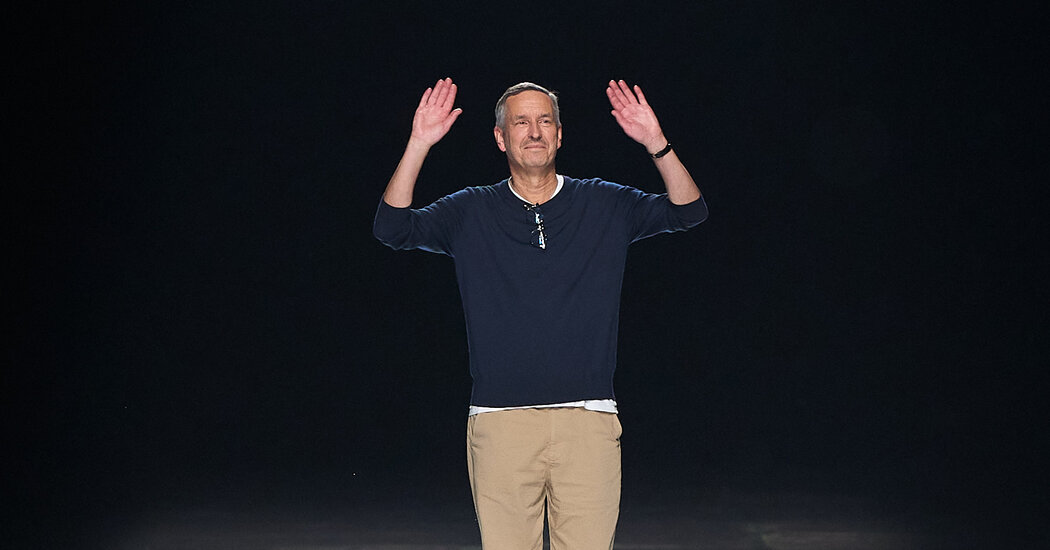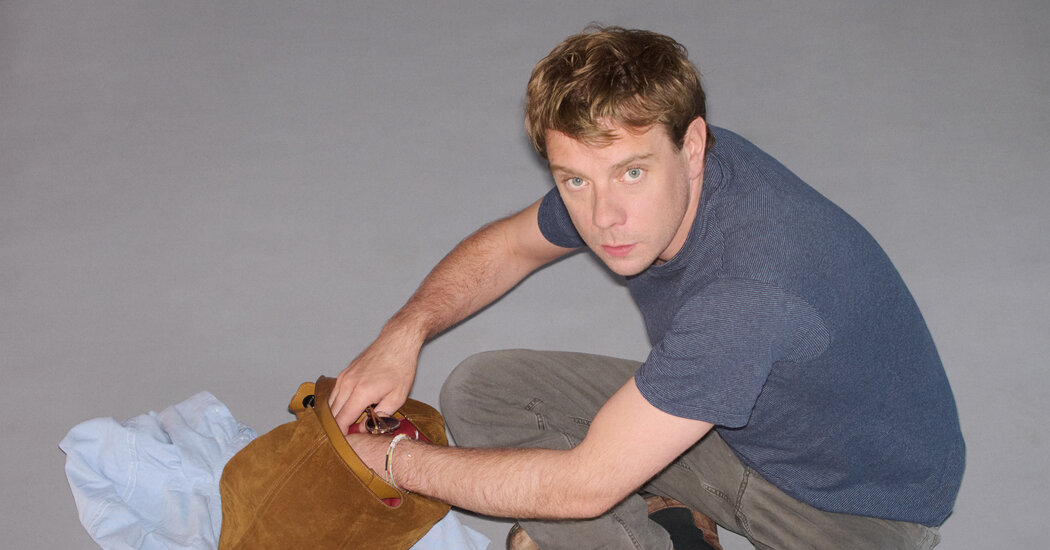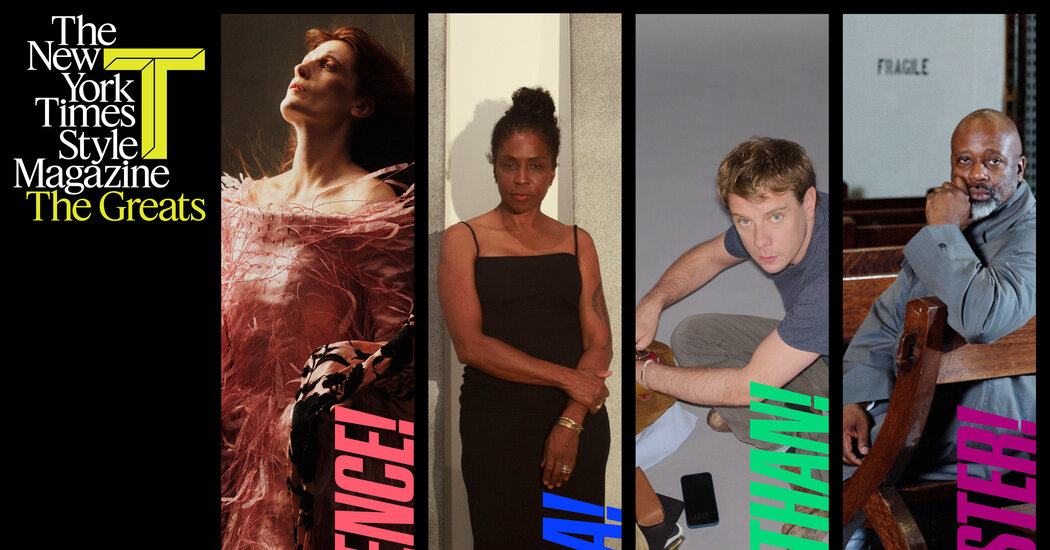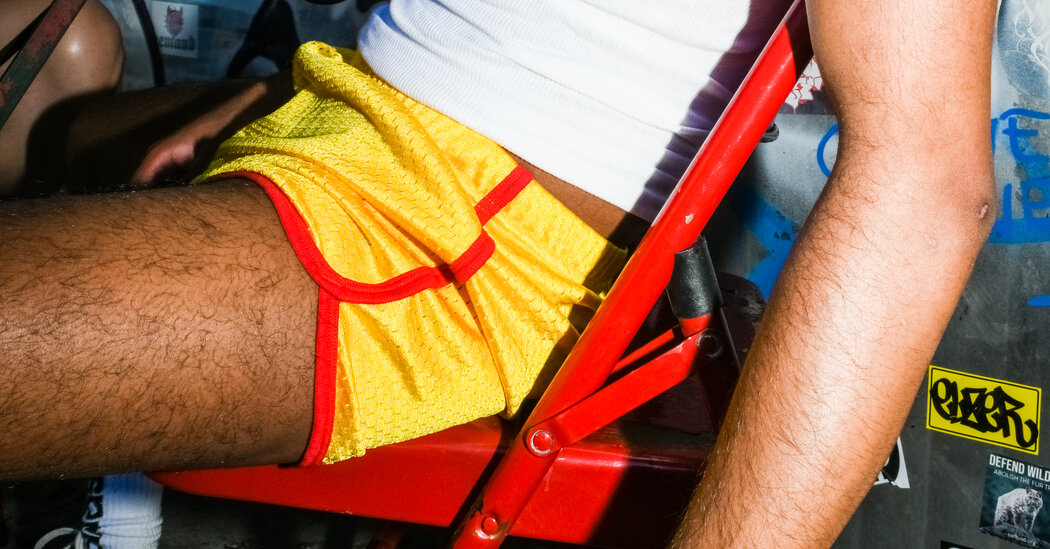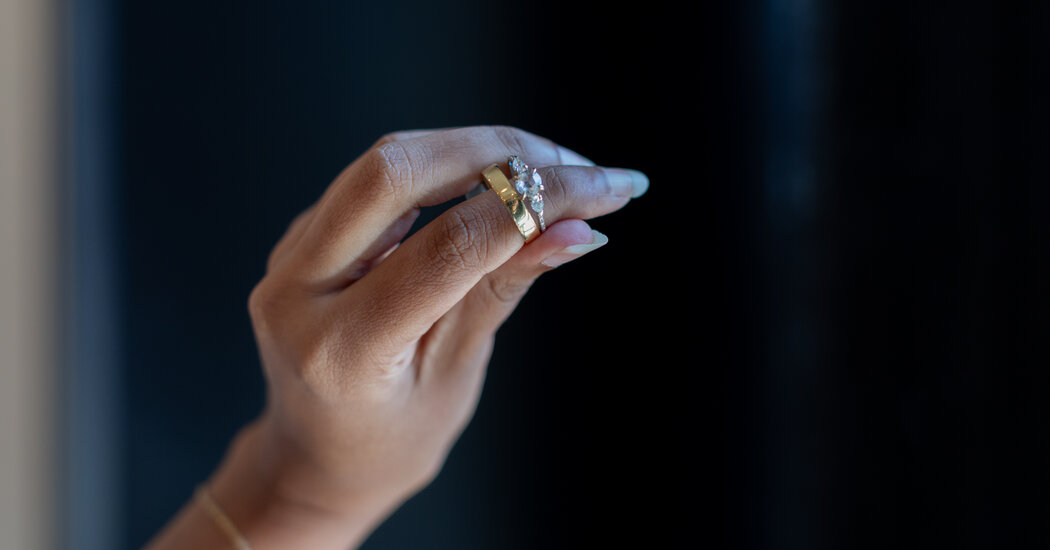“I tried to make things people would cherish,” Dries Van Noten said on Saturday evening, during a cocktail party and dinner preceding his final runway show. Mr. Van Noten held his first show in Paris back in 1991; now, at 66, he is stepping away from his namesake brand. His retirement was a shock to many in a business in which careers tend to be abnormally truncated or else to exceed their expiration date.
The decision to retire was not taken lightly, Mr. Van Noten said. Whose is? And it was destined to be a disappointment to fans of this gentle Belgian’s presence on the scene. And they are many. Why? There was his evolved craftsmanship. There was his singular gift as a colorist. There was his ability to skew pattern and tweak silhouette without compromising wearability. Perhaps alone among the designers of the vaunted Antwerp Six group he belonged to, Mr. Van Noten produced, for 150 collections, commercially accessible, cherishable clothes.
A pre-show dinner party of a kind the French term a cocktail dînatoire was held in a warehouse on the outskirts of Paris. Fans from throughout the decades — among them, the designers Pierpaolo Piccioli, Thom Browne, Glenn Martens, Stephen Jones, Harris Reed and Diane von Furstenberg — floated about a vast space as waiters poured Champagne in abundance and circulated with trays bearing tiny bowls of beet soup, white asparagus with poached egg, foie gras and shrimp on skewers.
As a waiter passed with a flight of beef tartare snacks, Edward Buchanan, the designer and Milan fashion director of Perfect Magazine, waved them away. Raw beef at parties is iffy, he said.
Asked about his relationship to Mr. Van Noten’s designs, Mr. Buchanan told a story. “Two years ago in L.A., all my things were stolen,” he said. For months after the theft, he spent every spare hour obsessively combing the internet for replacements — not of his personal mementos but of his lost Van Notens.
“I didn’t really care about anything else,” he said.
It was like that with Van Noten’s designs. You coveted them when you saw them and hoped to keep them for life.
So it felt keenly bittersweet that Mr. Van Noten’s valedictory collection, shown on a long runway poetically covered with shreds of silver leaf so light they fluttered through the air, encompassed many keystones of his graceful, unostentatious mastery. The show opened with an austere lightweight overcoat that suggested something dour was to follow, an impression quickly offset by a parade of transparent peekaboo trousers, dusters, overshirts and double-breasted suits buttoned low and slouchy in the manner of film noir gangsters.
Hawaiian Punch florals rendered in cool monochrome and paired with snakeskin patterns were followed by iridescent metallic trousers and tunics jackets in a gold-and-silver fabric that moved like molten metal. The effect was both minimalist and wizardly.
If there were no other single reason to lament Mr. Van Noten’s retreat from fashion, there is his color sense. Could another designer layer a taupe field jacket with bellows pockets on the breast and sleeves over a pair of salmon-colored fuzzy shorts with unfinished hems and a rosy-beige shirt whose color, in more benighted times, Crayola crayons marketed as Flesh?
Let’s hope so. Until that time, the smart money is on a serious uptick in online sales of vintage Dries Van Noten. As Mr. Buchanan realized when his bleach-dipped denim jacket was swiped, Joni Mitchell was 100 percent correct about not knowing what you’ve got till it’s gone.



